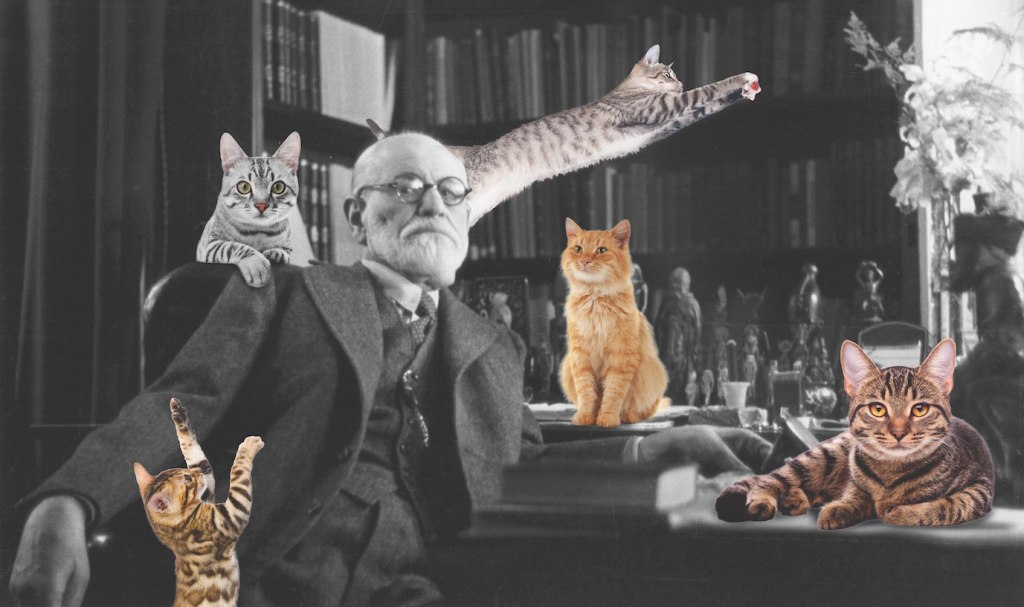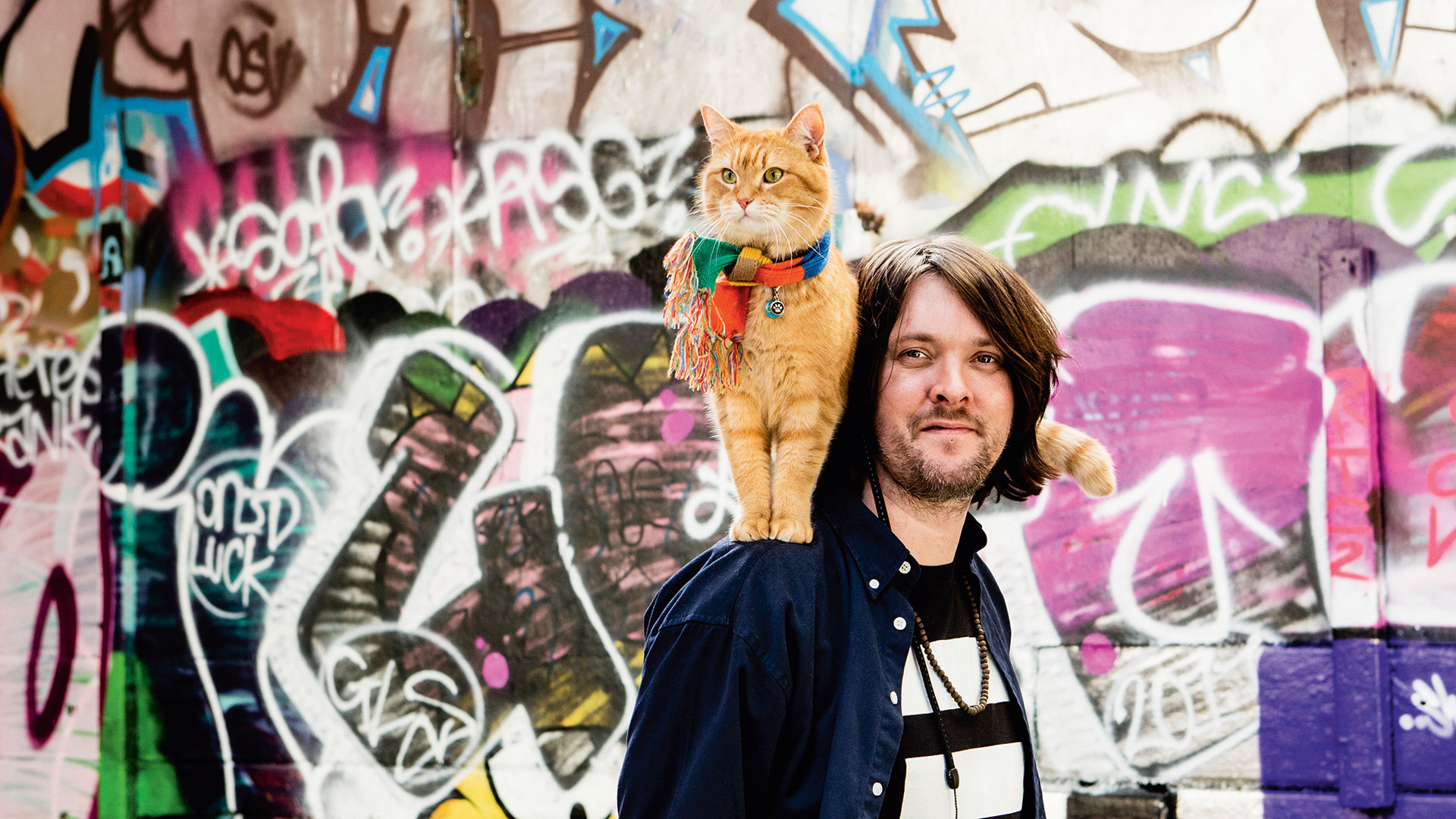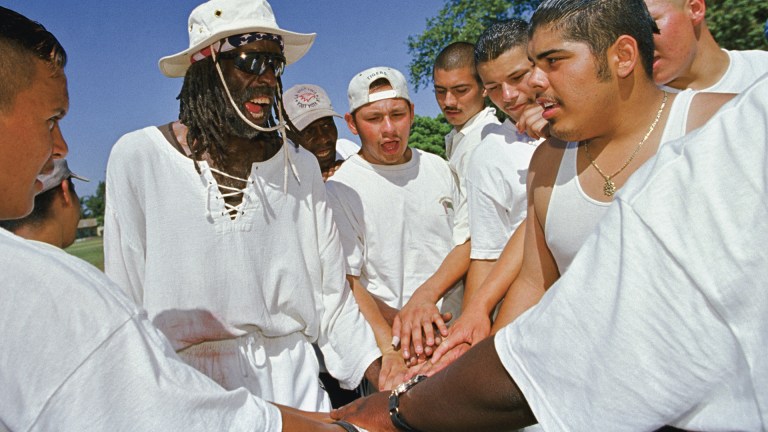The title page of one of my books, A Gift from Bob, carries a quote from the father of psychotherapy Sigmund Freud (below). It reads: “Time spent with cats is never wasted.”
At the time they were written, a hundred years or so ago, they weren’t exactly regarded as the wisest words the great man had ever committed to paper. A century later, however, they seem as profound as almost anything Freud wrote about the human mind.
Scientists now acknowledge that animals can transform our lives. They can provide vital emotional and psychological help to people suffering from everything from loneliness to epilepsy, illiteracy to terminal illness. Time spent with cats, dogs, rabbits, hamsters, horses – you name it – is most definitely never wasted. Quite the opposite, in fact, as I know all too well.

No one is more aware of animals’ almost superhuman healing powers than me. I have loved cats for most of my life and, nine years ago, forged a bond with one particular feline, an injured street cat that I named Bob. I was at a particularly low ebb at the time, recovering from addiction and a period of homelessness. After taking him in and nursing him back to health, Bob gave me the direction, the sense of purpose, the responsibility, the love and – perhaps most of all – the hope I needed to set my life back on track. He saved my life, in many ways. Around the UK – and the world – other animals are doing the same every day, many of them as part of a growing number of charities raising awareness of the magic of animal therapy.
Bob and I, for instance, have raised funds for the Ebony Horse Club in London, where underprivileged children benefit from interacting with and riding ponies. Bob and I have visited their centre (pictured, bottom) and seen, at first hand, the amazing work they do. By exposing children from some of the toughest estates in south London to horses, they give them life skills and a sense of well-being that they simply wouldn’t get in their home environments. Children learn not just to ride horses but to clear out stables, to interact with other children and to generally improve their social skills. It’s a wonderful place.
These amazing charities also use animals for another vital cause, one that Bob and I have tried to promote – literacy
While the Ebony Horse Club focuses on young people, a similar charity, the Elisabeth Svendsen Trust, takes donkeys rather than ponies into residential care homes and hospices across the UK to brighten the days of people at the other end of life.











